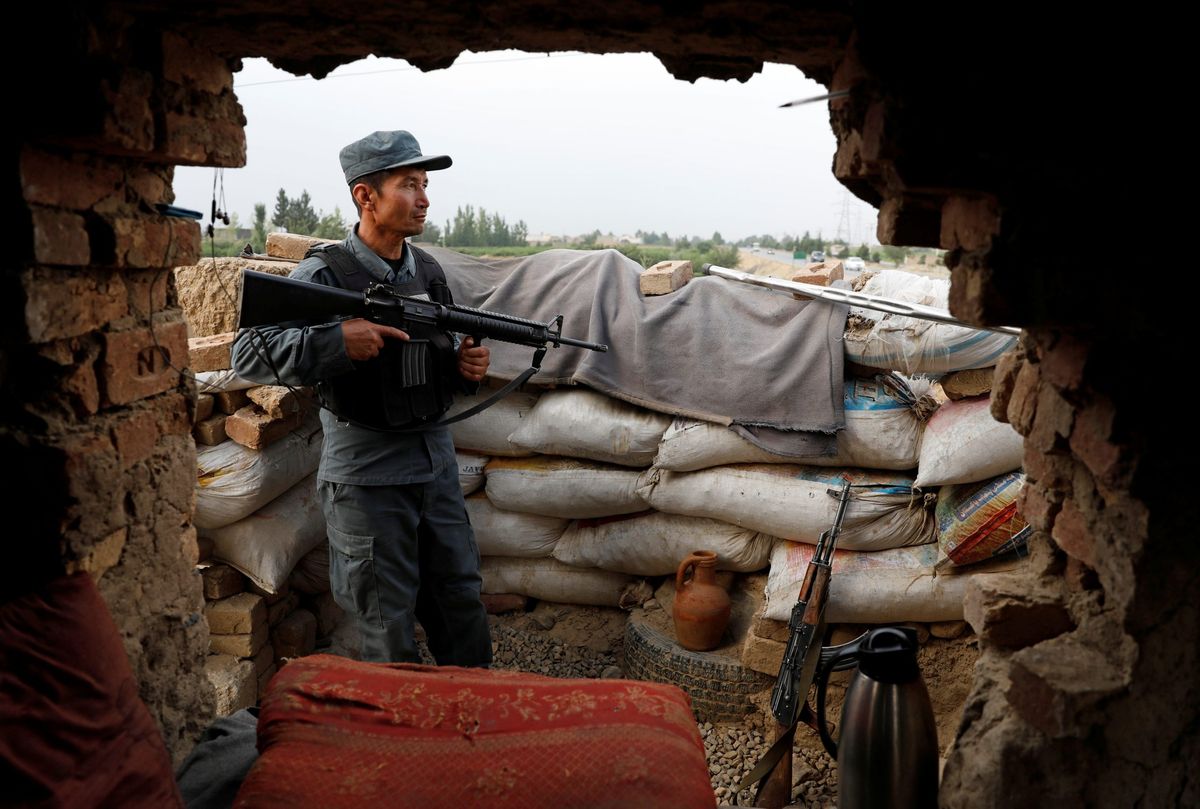How does US withdrawal from Afghanistan put pressure on Russia?

A few minutes every morning is all you need.
Stay up to date on the world's Headlines and Human Stories. It's fun, it's factual, it's fluff-free.
For Russia, similar concerns echo for its southern border. In fact, there are reports from Russian state media that Russian President Vladimir Putin made a rare offer to President Biden for the US to use Russia’s bases in Tajikistan and Kyrgyzstan to coordinate information-gathering efforts.
What happened?
- American troops have been stationed in Afghanistan since 2001, right after the September 11 terrorist attacks.
- Since then, when and how to pull American troops out of Afghanistan, or to pull them out at all, has been a major political sticking point for every president.
- But in February of last year, the Trump administration struck a deal with the Taliban to remove all American forces from Afghanistan by May of 2021.
What did the deal involve?
- So, the deal was that the US and NATO allies would withdraw all troops if the Taliban met certain conditions. These conditions included things like coming up with a power-sharing agreement with the Afghan government.
- The Afghan government competes with the Taliban in several areas in the country because the Taliban essentially see themselves as a government-in-waiting, not a rebel group.
- The transition from the Trump to Biden administration complicated the timeline of the plan a bit, but ultimately President Joe Biden announced that he planned to have all American forces out of Afghanistan by September 11, 2021, the 20th anniversary of the 9/11 attacks.
- The US troop withdrawal has meant that the Taliban has been able to advance across the country, capturing cities and border crossings and expanding their territory in the region.
- One local resident in the Balkh province told the BBC that “People have no choice but to do what [the Taliban] say. even over minor issues they get physical. People are scared."
- The growth of the Taliban has also put pressure on other countries in the region, including neighboring countries Pakistan, Tajikistan and Uzbekistan, as well as major players in Eurasia such as China and Russia.
How does that pressure Russia and China?
- American withdrawal is creating turmoil in the Afghanistan that both Russia and China see as legitimate and concerning national security threats.
- For China, fears of terrorist activity in Pakistan seem to be top-of-mind. Just last week, there was an explosion and vehicle crash that killed nine Chinese citizens in Pakistan.
- More broadly, China worries about the region becoming destabilized and ultimately, a breeding ground for terrorism.
- For Russia, similar concerns echo for its southern border. In fact, there are reports from Russian state media that Russian President Vladimir Putin made a rare offer to President Biden for the US to use Russia’s bases in Tajikistan and Kyrgyzstan to coordinate information-gathering efforts.
- And, Russia’s Foreign Minister Sergei Lavrov has said that Russia is interested in helping to start peace talks between the Taliban and Afghan governments in Afghanistan, an effort to pacify the country.
How did the US respond to the request?
- The US has largely been focused on getting American troops out of the country, as well as ensuring safety for local Afghans who helped the US during its time there and through the withdrawal.
- The Biden administration has been in talks with Kazakhstan, Tajikistan and Uzbekistan about taking in these Afghans while the US sorts out the visa process for those individuals.
- But there’s reportedly been no concrete movement from the US over the Russian offer for military bases. Some are also skeptical that pulling out of Afghanistan was necessarily motivated by the Russian reaction at all.
- Speaking to TMS, Benno Zogg, a Senior Researcher for the Swiss and Euro-Atlantic Security Team, explained that he didn’t see the US pulling out of Afghanistan being motivated by calculations about what Russia’s response might be, but rather for the unsuccessful nature of the mission, as well as domestic unpopularity.
- “If anything, leaving the field for Russia and China (and Iran) to now up their game in Afghanistan is countering US strategic interests,” said Zogg, “but [it] will be interesting to observe.
What’s next?
- The two things to watch will be what Russia and the US do in the coming months.
- Russia has a lot of power in this situation because they are one of the major arms suppliers in the region, meaning that their involvement in Taliban-Afghan peace talks could be a weighty thing, and could potentially show more success than other countries.
- And what the US decides to do will also be important. Some US officials from the Central Intelligence Agency (CIA) are still in Afghanistan, while some soldiers will stay behind to defend the embassy there, meaning that just because troops have left doesn’t mean the US has entirely abandoned the region.
Have a tip or story? Get in touch with our reporters at tips@themilsource.com




Comments ()